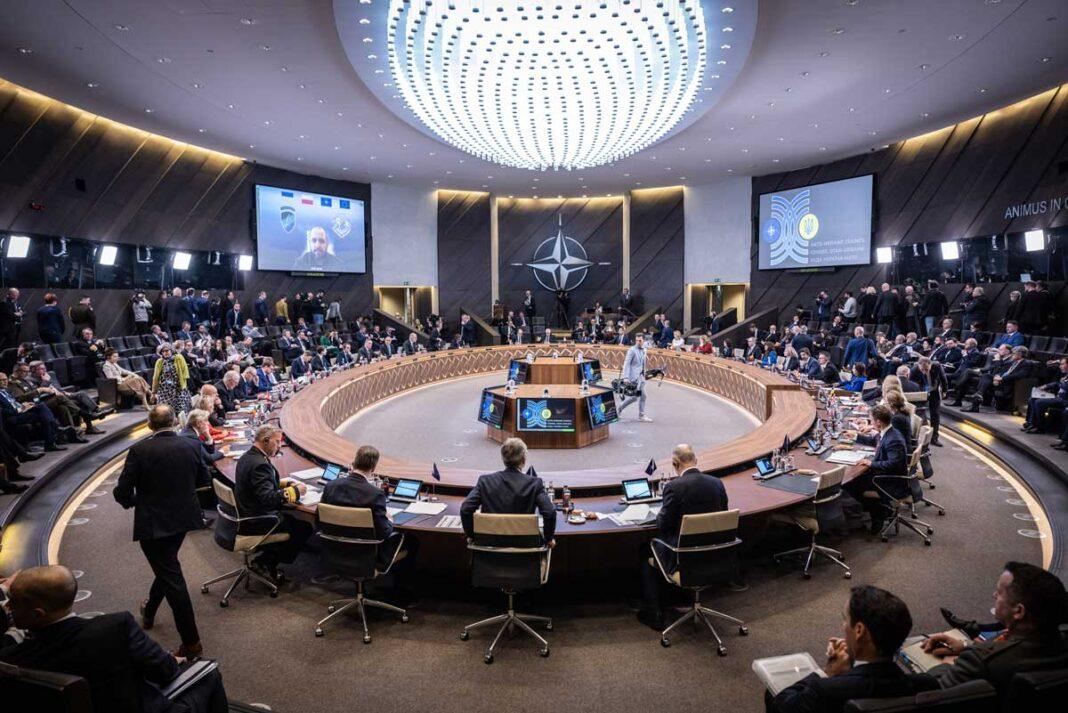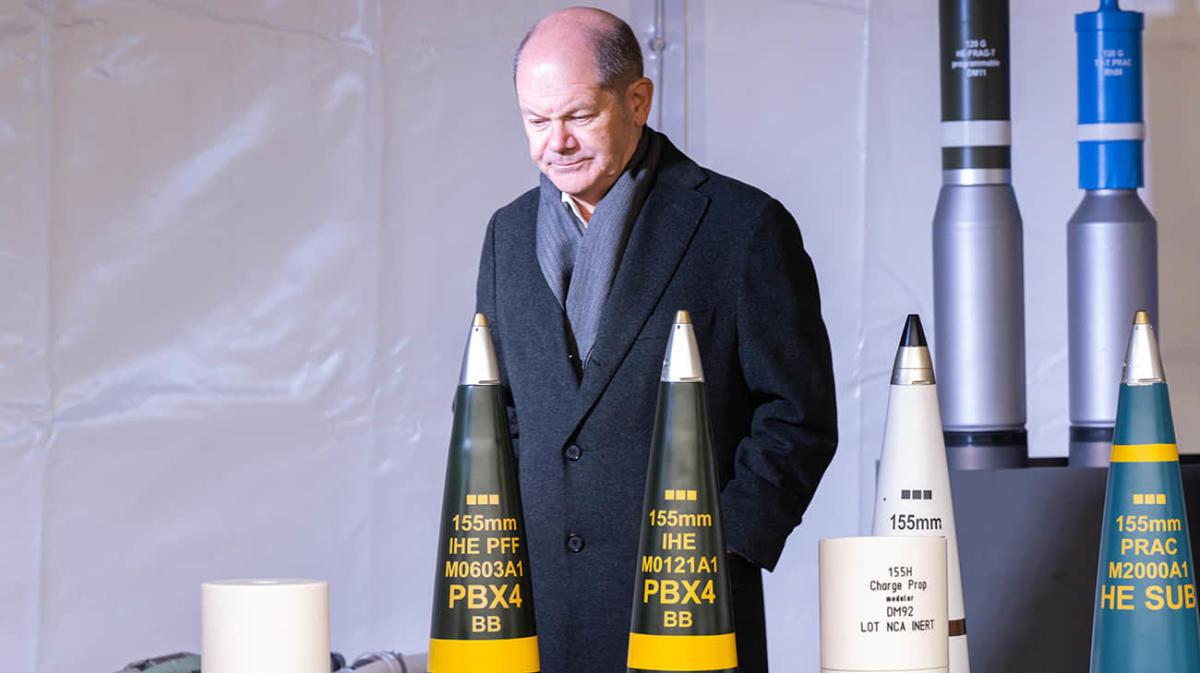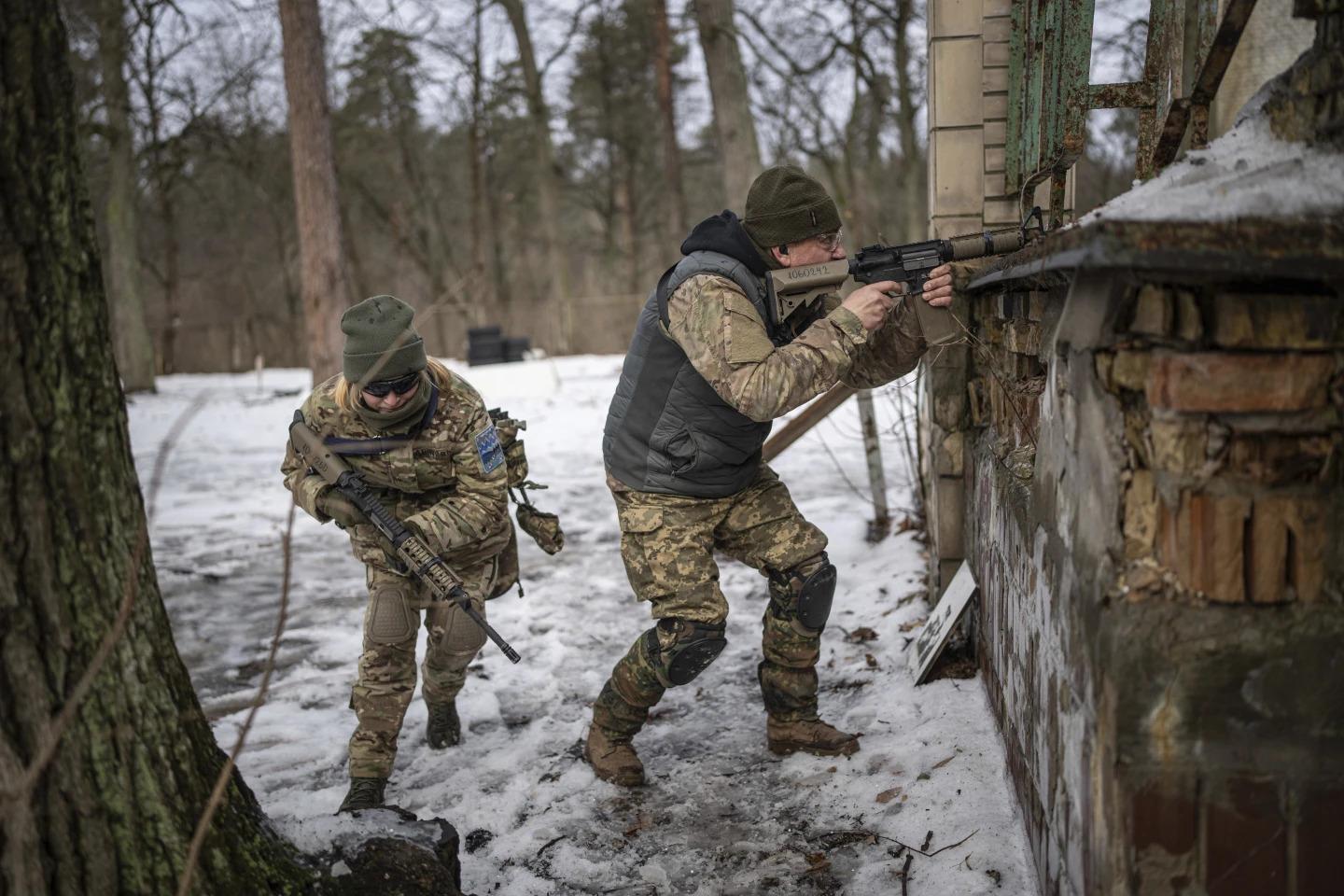The second anniversary of the war in Ukraine and its global impact Turning tides
Several thousand people gathered in cities across Europe to commemorate two years since the start of Russia’s full-scale invasion of Ukraine. Thousands of people in different countries marched in a solidarity rally to support Ukraine and protest against the invasion that left thousands dead and ruined entire cities while causing global economic and energy disruption.
On the second anniversary of the war, many in Ukraine and Europe seemed less optimistic as Russian forces recently captured Avdiivka town despite Kyiv's enormous efforts to stop the advancement. Ukrainian commanders had complained for weeks of personnel and ammunition shortages. It was the biggest battlefield victory for Russia since the fight for Bakhmut, and it confirmed that Moscow’s offensive was gaining steam.
The fall of Avdiivka increased the chances of Russia’s advancement towards Kharkiv, one of the largest cities, which would be Kyiv’s most significant defeat in the endless war.
The rhetoric of the US-led West seems to be shifting from "Putin must lose" to "Putin must not win" as it struggles to meet Ukraine's expectations of financial and military support, wherein President Biden promises to support Ukraine "for as long as it takes" subtly seems to shift to "As long as we can" as he faces delay in clearing foreign aid package.

Despite some failures in the frontline, major European powers are willing to fund Ukraine’s military, but the question remains as to who will provide enough trained soldiers to match Russian soldiers on the frontline, as the asymmetry of numbers might prove to be a game changer in a protracted war of attrition. Triumphs have turned to attrition for Ukraine along the snaking front line in the country’s east.
Despite the stalemate in ground operations, Ukraine has proven successful in the Black Sea, where it has used long-range weapons to strike military installations in Crimea and maritime drones to sink Russian warships. Ukraine has disabled a third of the Black Sea Fleet.
Given the results of sabotage operations against Russian forces, Kyiv pressures the Western partners to acquire more sophisticated long-range missiles to strike deep into Russian-occupied territory, a move that some European countries fear may spark escalation from Moscow.

For instance, on the second anniversary of the war, German Chancellor Olaf Scholz strongly opposed supplying Taurus cruise missiles to Ukraine, citing the risk of drawing Germany into the conflict, despite that Kyiv stated that his country requires Taurus cruise missiles to defend itself against Russia and that concerns about escalation of the war are unfounded.
In addition to long-range missile demands, Ukraine finds it challenging to mobilize additional troops as without more soldiers, Ukraine’s defensive lines will be overstretched and more vulnerable to Russian attack, especially if Moscow launches intense multi-pronged assaults along the 1,000-kilometer front line.
At this critical stage, Ukraine needs at least 450.000 new recruits to be able to confront Russia’s advancement. Even if Ukraine succeeds in mobilizing that number, it still would not be able to match the manpower of Russia, which has more than three times Ukraine’s population.
As such, during his speech, French President Emmanuel Macron mentioned that sending Western troops to Ukraine should not be ruled out. Although many European leaders do not have a consensus regarding sending troops to Ukraine, the poor perspectives on Kyiv’s end may force the EU to explore alternative ways of supporting Ukraine. Indeed, the West will do whatever it takes to ensure that Russia cannot win this war.

Amid heightening tensions and Russia’s continuous missile attacks, the peaceful regulation of the war is unrealistic. Ukraine demands Russia to abandon all its territorial claims, withdraw its forces from Ukrainian territory, and give financial compensation for the damage inflicted.
Moscow, on the other hand, insists that Ukraine shelve a law banning talks with Russia and wants it to return to its neutral, non-aligned, and non-nuclear status, as well as ensure the rights and freedoms of its Russian-speaking citizens.
Two years of the Russia-Ukraine War have caused tremendous economic, energy, and food crises globally and pushed people not connected with the war too to face immense inflationary pressure.
Notably, the most damaging impact for NATO has been the rise of an opposing power block in terms of Russia-China-Iran-North Korea. Therefore, as the war enters the third year, the collective West may forge a new alliance to boost NATO’s defence capabilities against potential Russian missile attacks.








